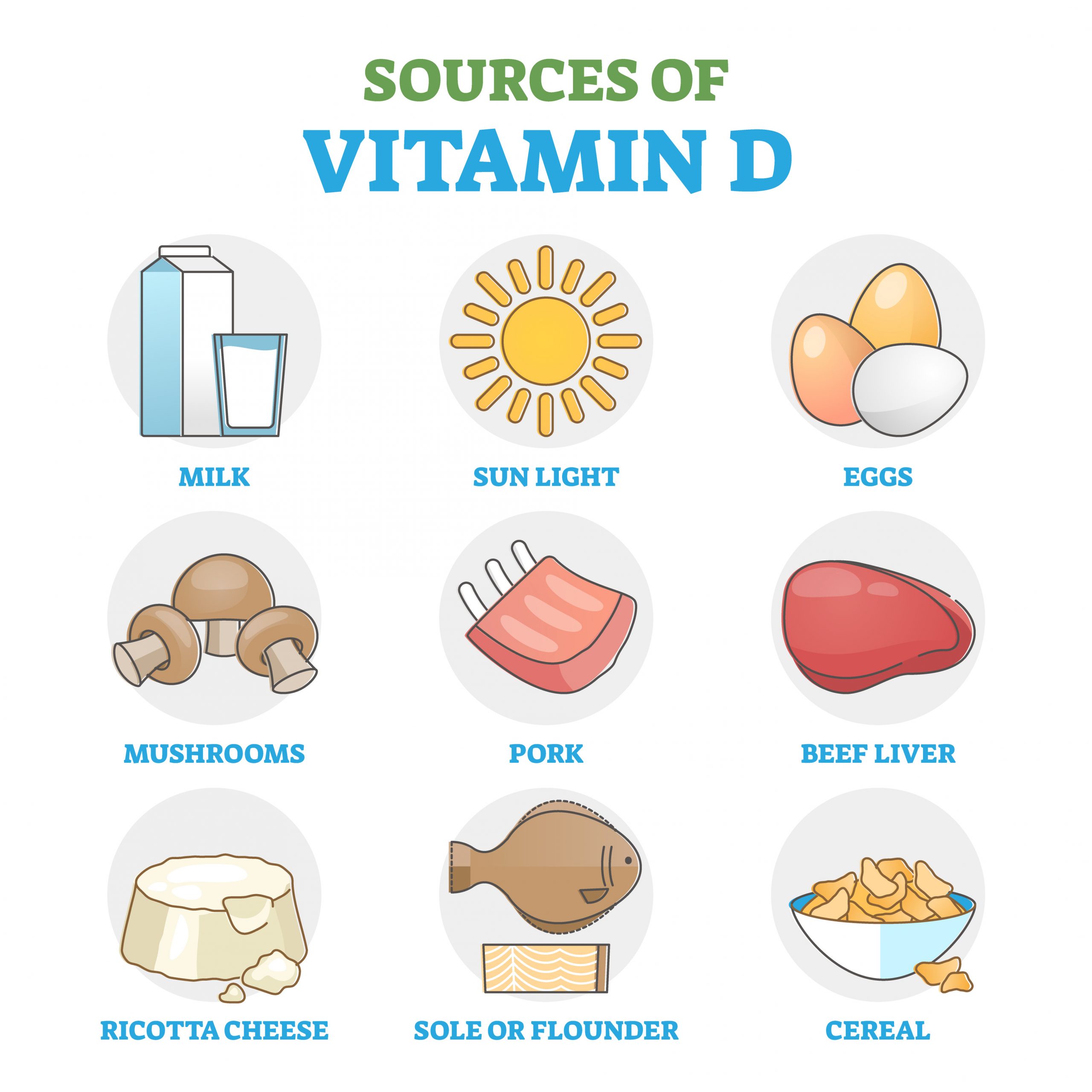The Importance of Vitamin D –
Cloudy days and cold, wet weather come as no surprise to us living in the UK, but did you know that around one in five adults, and one in six children in the UK are Vitamin D deficient?
Vitamin D helps regulate the amount of calcium and phosphate in the body and is produced when we are exposed to sunlight.
The trouble for many of us is that during winter we are not exposed to enough sunlight, and during summer we use sunscreen to protect our skin which blocks up to 97% of the body’s vitamin D production.

1 in 5 adults and 1 in 6 children in the UK are vitamin D deficient
WHY IS VITAMIN D ESSENTIAL?
A lack of vitamin D can lead to health problems such as bone deformities like rickets which affects the development of childrens’ bones, as well as a similar condition in adults caused osteomalacia.
Moreover, Vitamin D isn’t just a vitamin. It is also a hormone, synthesised in the skin from sun exposure, and activated in the liver and kidneys. It functions as a hormone in every cell of the body, all of which have vitamin D receptors. These receptors control the expression of up to 2,000 different genes including almost 300 genes in the white blood cells involved in the body’s immune response.
Vitamin D is essential for:
- Cardiovascular health
- Colon and cellular health
- A healthy immune system
- Supporting healthy breast and prostate cell activity
- Reducing cellular growth (cancer cells)
- The absorption of calcium to support strong, healthy bones and teeth
New research during the Covid-19 pandemic has also suggested a link between Vitamin D levels and immunity.
HOW MUCH VITAMIN D DO WE NEED?
The optimal level of vitamin D in the blood ranges between 40-70 ng/mL but how much you need will vary on a variety of factors such as your age and lifestyle, how far north you live, how much time you spend in the sun and what time of the year it is. Unless you spend a lot of your time outdoors in a sunny climate or ingest huge amounts of cod liver oil every day, the chances are you are vitamin D deficient.
Even in sunny Spain, my home country, the majority of the population have low levels of vitamin D.
The NHS recommends everyone should take daily vitamin D supplements during the autumn and winter months, while Public Health England advises a daily dose of 400 IU/10 mcg to ward off the effects of severe deficiency. Other studies show that 6,000 to 10,000 IU or up to 250mcg per day (up to 20x more than the government’s recommendation) is required to maintain blood levels of 40ng/ml levels.
Don’t be alarmed that amounts that high are toxic. A study of healthy young men receiving 10,000 IU of vitamin D for 20 weeks showed no toxicity.
TAKE A TEST TO FIND OUT IF YOU ARE VITAMIN D DEFICIENT
Book a Nutritional Deficiencies Test through our website to find out your levels of Vitamin D. This test will also measure a whole range of other important levels of vitamins and minerals in your blood that will give you insight into your health. Most people are deficient in vitamin D and other important vitamins without even knowing it.

5 TIPS TO BOOST YOUR VITAMIN D LEVELS
If we can’t rely entirely on the weather, and only small amounts of vitamin D can be obtained from food, we must find additional sources of vitamin D to avoid deficiency.
Here are some tips to follow to make sure you are getting the right amount of vitamin D:
1. Get tested to find out your Vitamin D levels
Book a test through our website to find out what your levels are. Normal levels range between 40ng/mL and 60 ng/mL.
2. Take the right type of Vitamin D supplements
The only active form of vitamin D is vitamin D3 (cholecalciferol). Look for this type and take it with vitamin K2. Many vitamins and prescriptions of vitamin D have vitamin D2 which is not biologically active. Speak to a nutritional therapist and check the label before buying.
3. Take the right amount of vitamin D supplements
If you are deficient, you should take 5,000 to 10,000 IU of vitamin D3 a day for 3 months — always under the guidance of a nutritional therapist and doctor.
For maintenance, take 2,000 to 4,000 IU a day of vitamin D3.
Some people may need higher doses over the long run to maintain optimal levels because of differences in vitamin D receptors, living in northern latitudes, indoor living, or skin colour.
4. Monitor your vitamin D status until you are in the optimal range
If you are taking high doses (10,000 IU a day) your doctor or healthcare provider must also check your calcium, phosphorous, and parathyroid hormone levels every 3 months. Remember it takes 6-10 months to “fill up the tank” for vitamin D if you are deficient. Once this occurs, you can lower the dose to the maintenance dose of 2,000 to 4,000 units a day.
5. Eat dietary sources of vitamin D
-
-
- Fish oils – cod liver oil (*) one tablespoon = 1,360 IU of vitamin D
- Cooked wild salmon, 3.5 ounces = 360 IU of vitamin D
- Cooked mackerel, 3.5 ounces = 345 IU of vitamin D
- Sardines, canned in oil, drained, 1.75 ounces = 250 IU of vitamin D
- One whole egg = 20 IU of vitamin D
-
(*) Cod liver oil is best avoided by pregnant women and people taking anticoagulants such as warfarin.

Remember that vitamin D is synthesised in the liver and kidneys so for those people with kidney dysfunction, get your blood levels checked by your GP. Alternatively, now that it is so difficult to get a face to face doctors appointment these days, contact me to purchase a diagnostic Vitamin D kit test that can be easily done at home.